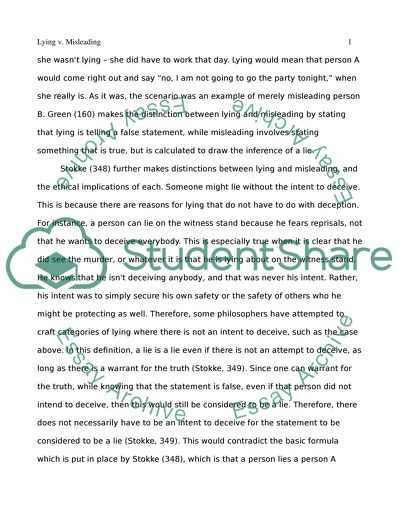Cite this document
(“Lying v. Misleading Essay Example | Topics and Well Written Essays - 1750 words”, n.d.)
Retrieved from https://studentshare.org/philosophy/1495751-what-is-the-difference-between-lying-to-someone
Retrieved from https://studentshare.org/philosophy/1495751-what-is-the-difference-between-lying-to-someone
(Lying V. Misleading Essay Example | Topics and Well Written Essays - 1750 Words)
https://studentshare.org/philosophy/1495751-what-is-the-difference-between-lying-to-someone.
https://studentshare.org/philosophy/1495751-what-is-the-difference-between-lying-to-someone.
“Lying V. Misleading Essay Example | Topics and Well Written Essays - 1750 Words”, n.d. https://studentshare.org/philosophy/1495751-what-is-the-difference-between-lying-to-someone.


